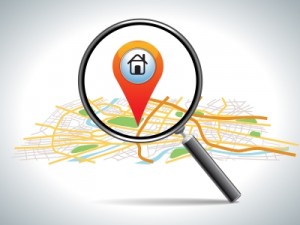 Every business with its own website and unique domain must register its domain name publicly. This ensures that only the person or company that paid for the domain name can use it. What few people know is that anyone on the Internet can view all of the information you provide to the domain name registrar. It doesn’t require hacking or signing up for any accounts, either. People can just perform a WHOIS lookup and see everything. There’s a way to hide your information, though. The following provides a comparison between public and private domain registration. It also gives you a basic rundown of WHOIS, including what it means and what it contains.
Every business with its own website and unique domain must register its domain name publicly. This ensures that only the person or company that paid for the domain name can use it. What few people know is that anyone on the Internet can view all of the information you provide to the domain name registrar. It doesn’t require hacking or signing up for any accounts, either. People can just perform a WHOIS lookup and see everything. There’s a way to hide your information, though. The following provides a comparison between public and private domain registration. It also gives you a basic rundown of WHOIS, including what it means and what it contains.What is WHOIS?
WHOIS is an Internet protocol people can use to obtain information from domain name registrars about the owner of the domain name. All of the information queried is human readable, so you don’t need any special software to understand it. The Internet Corporation for Assigned Names and Numbers (ICANN) ultimately registers and catalogs all domains ending in .com, .net or .org, but Regional Internet Registries (RIR) for large geographical areas store and serve WHOIS information.
The most basic information stored in WHOIS servers are the registrar, top-level domain, name servers, and dates created and changed. The information stored by WHOIS that you should really care about, however, is the name of the domain owner, the company name, address, country, phone number, fax number and email address. If someone goes to a website that looks up WHOIS information and types in your domain, they can view all of that information.
What is Private Domain Registration?
Some registrars offer private domain registration, which involves using proxy information in place of the registrant’s private contact information. Commonly, the registrar replaces the user’s email and postal addresses with the information for a forwarding service that will redirect mail to the user. Most private registration still includes the owner’s name or company name, but several registrars offer complete anonymity by replacing the name field with either the registrar’s or with a unique ID the registrar can use to look up the owner’s information.
Comparing Public and Private Domain Registration
Why would someone choose one type of registration over the other? It’s mostly about how much control you want over the information available to the public. If you run a business from your home, registering your domain publicly will make your personal.
If you’re registering a business domain and you have an office outside your home with its own business phone line, it’s much safer to use public registration. If you want to make your contact information fully accessible, there’s no reason to go private. For someone performing a WHOIS query, seeing your company’s actual information, rather than a proxy’s, will provide greater legitimacy. The decision rests with you; only you can decide whether you’re comfortable providing your contact information to the public.address available to everyone who looks. If you’re not worried about people coming to your house — which is unlikely to happen unless you set up a hate site — then you might think that’s no big deal. Unfortunately, many sketchy businesses collect information from new domain registrations and will start sending spam to your physical address and your email address.
Image credit: scottchan on Freedigitalphotos.net











Leave a Reply